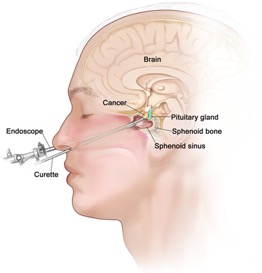Endoscopic TNTS
India
-
Our Price USD 6660
-
Hospital Price USD 7400
-
You Save : USD 740
Booking Amount: USD 666. Pay Remaining 90% at the hospital.
Book NowAdditional Credit
Among the important extras we offer as part of the Additional Credit are the following:
-
Site Tourism For The Patient & Attendant
-
Airport Pick & Drop Service
-
Ambulance service at airport
-
Priority appointments with The Doctor
-
Cancel Easily Anytime with Full Refund
-
Room Upgradation
-
Free Online Doctor Consultation Valued at USD 20
-
Free hotel Stay for 5 to 7 days Accordingly
-
Welcome Kit at Arrival
-
Interpreter
-
Medical Visa Assistance
What is Included?
- Doctor consultation charges
- Lab tests and diagnostic charges
- Room charges inside hospital during the procedure
- Surgeon Fee
- Cost of implant
- Nursing charges
- Hospital surgery suite charges
- Anesthesia charges
- Routine medicines and routine consumables (bandages, dressings etc.)
- Food and Beverages inside hospital stay for patient and one attendant.
What is not Included?
- Extra Radiology Investigations
- Healthcare Professionals Charges of other consultations.
- Other Requested Services such as Laundry etc.
- Additional Pharmaceutical Products and Medicines After Discharge from Hospital.
- Management of Conditions Unrelated to Procedures or Pre-Existing.
- The cost of any additional implants will be in addition to the package cost.
Package Description
Endoscopic TNTS:
The surgical process for removing tumours from the pituitary gland is known as transnasal transsphenoidal surgery, or pituitary adenoma. It is a minimally invasive surgery that involves removing the pituitary tumour through the nose. Tumors in other parts of the skull base can also be removed using this surgical method.
Disease Overview:
Pituitary tumor
Pituitary tumours are abnormal growths in the pituitary gland that develop over time. Some pituitary tumours cause an overabundance of hormones that control vital physiological functions. Your pituitary gland may generate less hormones as a result of some pituitary tumours.
The majority of pituitary tumours are benign (noncancerous) growths (adenomas). Adenomas are benign tumours that stay in the pituitary gland or surrounding tissues and do not spread to other regions of the body.
Pituitary tumours can be treated in a variety of ways, including surgical removal, growth control, and pharmacological management of hormone levels. Observation — or a "wait and see" strategy — may be recommended by your doctor.
Disease Signs and Symptoms:
Pressure from a pituitary tumour can cause the following signs and symptoms:
- Headache
- Loss of vision, particularly peripheral vision loss
- Changes in hormone levels can cause a variety of symptoms.
- Deficiency
Hormonal deficits may be caused by large tumours. The following are some of the signs and symptoms:
- Vomiting and nausea
- Weakness
- becoming chilly.
- Menstrual cycles are less frequent or nonexistent.
- Sexual dysfunction is a common problem.
- Urine volume has increased.
- Unintentional weight gain or loss
- Overfunctioning
Overproduction of hormones is caused by functioning pituitary tumours. Different forms of pituitary gland tumours induce different indications and symptoms, and occasionally a combination of them.
Tumors that secrete adrenocorticotropic hormone (ACTH)
ACTH tumours generate the hormone adrenocorticotropin, which promotes the production of cortisol by your adrenal glands. Your adrenal glands produce too much cortisol, resulting in Cushing syndrome. Cushing's signs and symptoms are listed below.
- The buildup of fat in your waist and upper back is unhealthy.
- Exaggerated roundness of the face
- Muscle weakening and thinning of the arms and legs
- Blood pressure that is too high
- Blood sugar levels are too high.
- Acne
- Bone deterioration
- Bruising
- Stretch marks are a type of scar that appears on
- Anxiety, anger, or sadness are all symptoms of depression.
- Tumors that produce growth hormone
- Acromegaly (excess growth hormone) is a condition caused by tumours that produce too much of it.
- Face with coarsened features
- Hands and feet that are too big
- Sweating excessively
- Blood sugar levels are too high.
- Problems with the heart
- Joint discomfort
- Teeth that are misaligned
- Hair growth on the body
- Adolescents and children may grow too quickly or become overly tall.
- Tumors that produce prolactin
A pituitary tumour (prolactinoma) that produces too much prolactin can cause a drop in normal levels of sex hormones like oestrogen in women and testosterone in men. Excess prolactin in the blood has varied effects on males and women.
Prolactinoma can lead to the following symptoms in women:
- Menstrual cycles that are irregular
- Menstrual periods are absent.
- Breasts have a milky discharge.
Male hypogonadism can be caused by a prolactin-producing tumour in males. The following are examples of signs and symptoms:
- Erectile dysfunction (ED) is a condition that affects men
- Sperm count has dropped.
- Suffering from a lack of sexual desire
- Breast development
- Tumors that produce thyroid-stimulating hormone
Your thyroid gland generates too much thyroxine when a pituitary tumour overproduces thyroid-stimulating hormone. Hyperthyroidism, often known as hyperactive thyroid disease, is caused by this uncommon condition. Hyperthyroidism causes your body's metabolism to speed up, resulting in:
- Loss of weight
- Heartbeats that are fast or irregular
- Irritability or nervousness
- bowel motions on a regular basis
- Sweating excessively
Disease Causes:
The source of unregulated pituitary gland cell proliferation, which results in a tumour, is unclear.
The pituitary gland is a little bean-shaped gland near the base of your brain, between your ears and slightly behind your nose. The gland, despite its modest size, has an impact on practically every aspect of your body. Its hormones aid in the regulation of vital activities including growth, blood pressure, and reproduction.
Pituitary tumours do run in families in a tiny percentage of instances, but for the most part, there is no obvious genetic connection. Nonetheless, experts believe that genetic changes have a role in the development of pituitary tumours.
Disease Diagnosis:
Pituitary tumours are frequently misdiagnosed due to symptoms that are similar to those of other illnesses. Some pituitary tumours are discovered as a result of medical examinations for other reasons.
Your doctor will most likely take a full history and do a physical exam to detect a pituitary tumour. He or she could place an order for:
- Tests of the blood and urine. These tests can establish whether you have an excess of hormones or a lack.
- Brain imaging is a technique for examining the brain. A brain CT scan or MRI can aid your doctor in determining the location and size of a pituitary tumour.
- Testing of vision
- This might help you figure out if a pituitary tumour has harmed your eyesight or your peripheral vision.
- Your doctor may also send you to an endocrinologist for extra in-depth testing.
Disease Treatment:
A pituitary tumour must typically be surgically removed if it is pushing on the optic nerves or if it is overproducing specific hormones. The type of tumour, its location, size, and whether the tumour has infiltrated adjacent tissues all influence the effectiveness of surgery. Pituitary tumours are treated using one of two surgical techniques:
Transnasal transsphenoidal endoscopic approach This allows your doctor to remove the tumour without making an exterior incision into your nose and sinuses. There is no visible scar and no other region of your brain is damaged. Large tumours, especially those that have infiltrated adjacent nerves or brain tissue, may be difficult to remove this method.
Taking a transcranial perspective (craniotomy). An incision in your scalp is used to remove the tumour from the upper region of your skull. This approach makes it simpler to access huge or difficult tumours.
Radiation therapy
To eliminate cancers, radiation treatment employs high-energy sources of radiation. It can be used as a follow-up to surgery or as a stand-alone treatment if surgery is not an option. If a tumour persists or returns after surgery, causing signs and symptoms that drugs are unable to alleviate, radiation therapy may be effective. Radiation treatment can be done in a variety of ways, including:
Radiosurgery with stereotactic accuracy. This treatment, which is usually given as a single high dosage, concentrates radiation beams on the tumour without the need for an incision. With the use of advanced brain-imaging tools, it sends radiation beams the size and form of the tumour into the tumour. The amount of radiation that comes into touch with healthy tissue around the tumour is kept to a minimum, reducing the risk of harm to normal tissue.
Radiation from an external beam. This method emits radiation in modest doses over time. On an outpatient basis, a series of treatments are administered five times each week for four to six weeks. While this treatment is frequently effective, complete control of tumour growth and hormone production might take years. Radiation therapy can potentially harm normal pituitary cells and brain tissue, especially near the pituitary gland.
IMRT (intensity modulated radiation treatment) is a type of radiation therapy that changes the (IMRT). A computer is used in this sort of radiation therapy to allow the doctor to shape the beams and surround the tumour from a variety of angles. The beams' strength can also be regulated, reducing the amount of radiation delivered to adjacent tissues.
Proton beam treatment is a type of radiation therapy that uses protons to treat cancer Instead of X-rays, this form of radiation employs positively charged ions (protons). Proton beams, unlike X-rays, come to a halt after releasing their energy within their target. The beams can be precisely regulated and employed on tumours while posing little damage to healthy areas. This sort of therapy necessitates the use of specialised equipment, which is not commonly available.
The advantages and dangers of various types of radiation therapy aren't always apparent right once, and they might take months or years to completely manifest. A radiation oncologist will assess your situation and explain the benefits and drawbacks of each treatment choice with you.
Medications
Medication can help limit excess hormone release and decrease several forms of pituitary tumours
Pituitary hormone replacement
If a pituitary tumour or surgery to remove it reduces hormone production, you'll almost certainly need to take replacement hormones to keep your hormone levels in check. Pituitary hormone replacement is required in certain persons who have had radiation treatment.
waiting with bated breath
You may require regular follow-up tests to see if your tumour develops while on watchful waiting, also known as observation, expectant therapy, or postponed therapy. If your tumour isn't creating any indications or symptoms, this may be a possibility.
If the tumour isn't causing additional issues, many people with pituitary tumours can function properly without therapy. If you're younger, watchful waiting may be an option if you're willing to face the potential that your tumour could change or grow during the waiting time, necessitating treatment. You and your doctor can assess the risks of developing symptoms vs the cost of therapy.
Information related to Treatment
Package Details
Days in Hospital
5 Days
Days in Hotel
*
14 Days
Room Type
Private

Treating Doctor
Dr. Rajender Prasad
Orthopedist & Spine Surgeon- Ankylosis Spondylitis, Brachial plexus repair, Spinal Tumor, Back pain, Spinal Deformity, Carpal Tunnel Syndrome, Cervical Canal Stenosis, Cervical Disc Prolapse, Congenital Spine Abnormality, Facet Joint & Sacro-Iliac, Lumbar Canal Stenosis, Lumbar Disc Herniation, Sciatica, Spinal Infection, Spinal Injury
Indraprastha Apollo Hospitals, New Delhi New Delhi, India
38 Years of Experience

Treating Doctor
Dr. Vipin Tyagi
Orthopedist- Spinal Deformity correction, Correction of deformities, Spasticity, Joint Replacement Surgery, Wrist Problem, Reconstruction and Rehabilitation, Disc Slip, External Fixator, Reconstruction and Bone Lengthening, Cruciate Ligament Recosntruction
Medanta-The Medicity, Gurgaon Gurgaon, India
35 Years of Experience
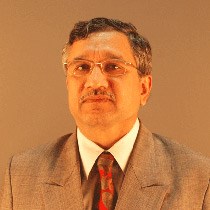
Treating Doctor
Dr. BHAVE ARVIND
Orthopedist & Spine Surgeon- Slip Disc Specialist, Endoscopic Surgery, Minimally invasive spine surgery (MIS), Spine fracture/ trauma, Spinal pain & Spinal Stenosis, Degenerative Spine
Deenanath Mangeshker Hospital and research centre, Pune Pune, India
31 Years of Experience
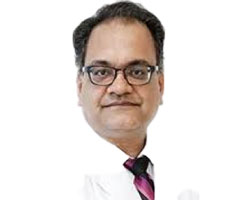
Treating Doctor
Dr. Vineesh Mathur
Spine Surgeon- Spine Surgery, Spine Surgery, Spine Surgery, Spine Surgery, Spine Surgery, Spine Surgery, Spinal Deformity, Spine Tumors
Medanta-The Medicity, Gurgaon Gurgaon, India
31 Years of Experience
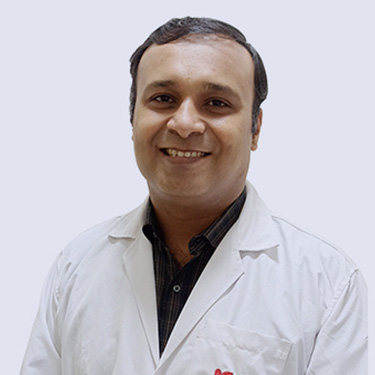
Treating Doctor
Dr. Hrutvij Bhatt
Orthopedist & Spine Surgeon- Spine Surgery, Spine Surgery, Spine Surgery, Minimally Invasive Spine Surgery, Disc replacement (Artifical Disc Placements), Deformity correction, Sports Injuries Surgery, Spine Surgery, Herniated Disc, Cervical Spondylitis, Spine Surgery, Minimally Invasive Spine Surgery, Spine Surgery, Cervical Disc Prolapse, Herniated Disc, Cervical Spondylitis
KD Hospitals, Ahmedabad Ahmedabad, India
10 Years of Experience

Treating Doctor
Dr. Devesh Dholakia
Orthopaedic Surgeon,Orthopaedic Surgeon,Orthopedist & Spine Surgeon- Endoscopic Surgery, Endoscopic Surgery, MIS decompression and TLIF for the spine, Cervical Disc Replacement, Deformity correction, Minimally Invasive Orthopaedic Surgeries, Osteoporosis, Revision Spine and Joint Replacement Surgeries, Scoliosis and Kyphosis Deformity Correction Surgeries, Sciatica, Osteoporosis
Jaslok Hospital & Research Centre, Mumbai Mumbai, India
31 Years of Experience
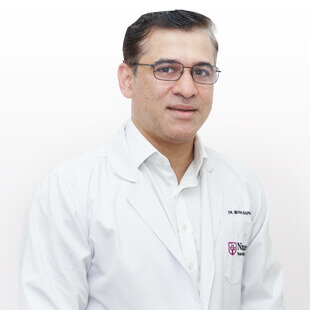
Treating Doctor
Dr. Mihir Bapat
Orthopedist & Spine Surgeon- Spinal Cord Injury, Kyphoplasty, Vertebroplasty, Spinal Deformity correction, Scoliosis, Neck and Spine Biopsy, Wrist Problem, Disc Slip, Column traumatology, Spinal Surgery Disorders, Herniated Disc, Spinal Injury, Herniated Disc, Neck and Spine Biopsy, Vertebroplasty, Scoliosis
Nanavati Max Super Speciality Hospital, Mumbai Mumbai, India
24 Years of Experience
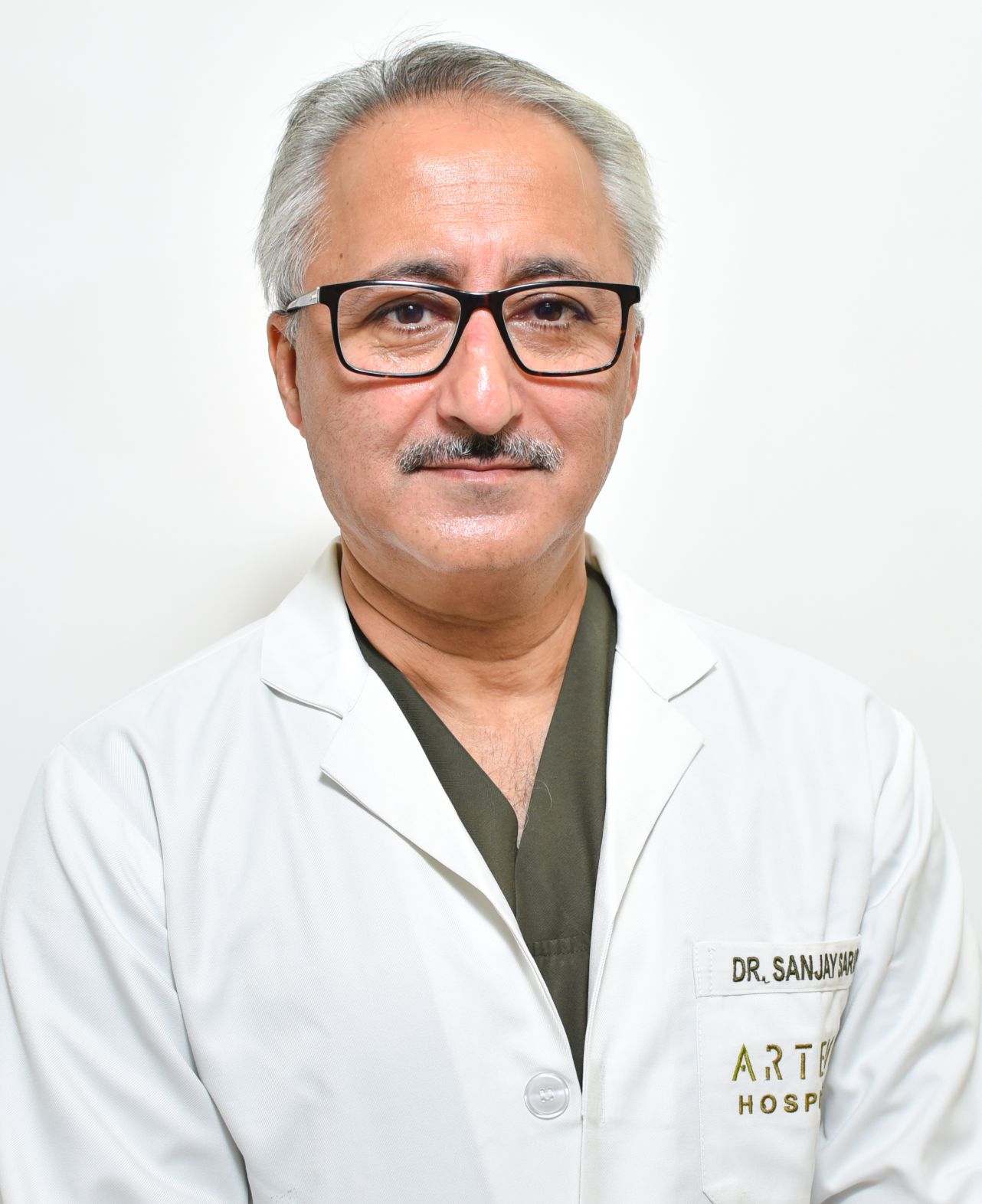
Treating Doctor
Dr. Sanjay Sarup
Orthopedist & Spine Surgeon- Rheumatoid Arthritis, Rheumatoid Arthritis, Cruciate Ligament Recosntruction, Avascular Necrosis of Hip Joint, Osteoarthritis (Most Common), Hip Fracture or Hip Dysplasia, Ankle Fracture, Deformed Knees, Meniscus Tear, Torn Anterior, Osteonecrosis, Hip Osteoarthritis, Knee Pain Treatment, Rheumatoid Arthritis, Osteoarthritis (Most Common), Injury or Fracture of the Hip Joint, Ankle Fracture, Ankle Arthritis, Knee Injury, Erb's Palsy, Bone Tumor in the Hip Joint, Brachial Plexus Avulsion, Carpal Tunnel Syndrome, Avascular Necrosis of Hip Joint, Brachial Plexus Rupture, Major Fractures, Shoulder Injury, Knee Osteoarthritis, Torn Rotator Cuff, Knee Pain Treatment
Artemis Hospitals Gurgaon, India
29 Years of Experience
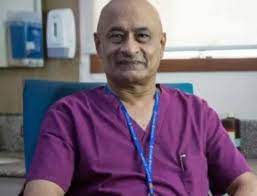
Treating Doctor
Dr. Rajagopalan Krishnan
Orthopedist & Spine Surgeon- Spinal Injuries, Slip Disc Specialist, Foot Drop, Spasticity, Spondylosis, Functional Orthopedics, Neck and Spine Biopsy, Spasticity, Lower Extremity Wound Care, Knee Pain Treatment, Spondylosis, Spinal Therapy, Herniated Disc, Spasticity, Skeletal Muscle Therapy, Foot Assessment, Spasticity, Functional Orthopedics, Foot Pressure/Vascular Assessment, Neuropathy Assessment. Spinal Disc Surgery, Spine Mobilization, Lower Extremity Wound Care, Spinal Diseases, Herniated Disc, Neck Pain, Neck and Spine Biopsy, Ankle-Brachial Index, Hand Pain, Spinal Fusion Heat Therapy, Foot Drop Spinal Surgery, Diabetic Foot Check-Up, Spinal Disorders, Disc Prolapse, Spinal Therapy, Knee Pain Treatment, Spondylosis, Foot Drop
Indraprastha Apollo Hospitals, New Delhi New Delhi, India
46 Years of Experience
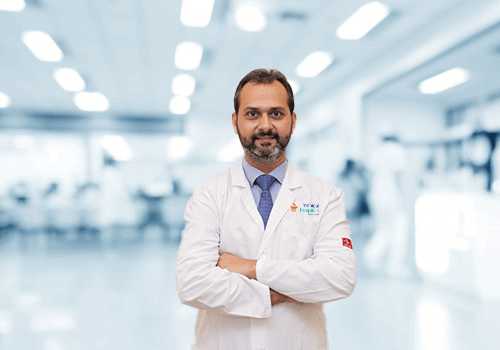
Treating Doctor
Dr. Saurabh Verma
Orthopedist & Spine Surgeon- Minimally Invasive Spine Surgery, Spinal Deformity correction, Spine Traumaq, Degenerative Spine Disorder
Manipal Hospitals New Delhi, India
17 Years of Experience

